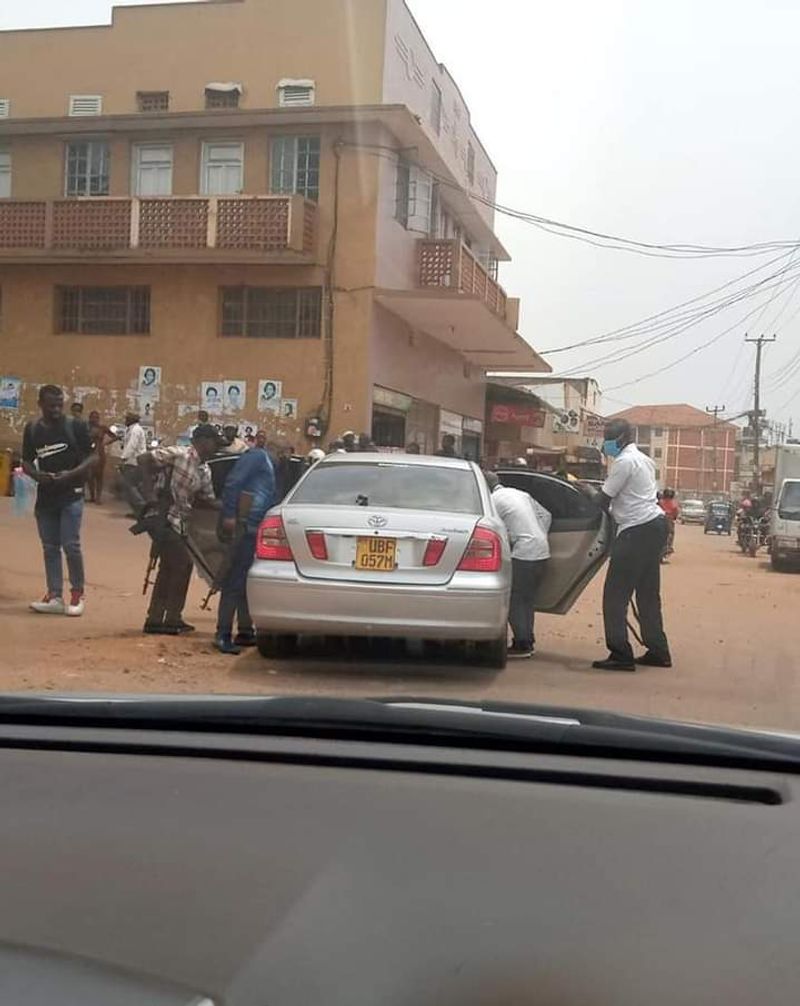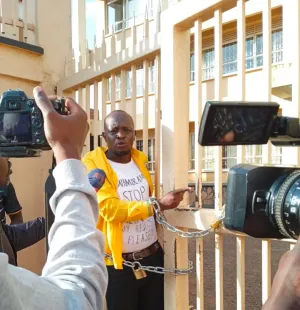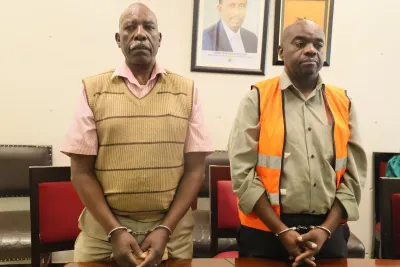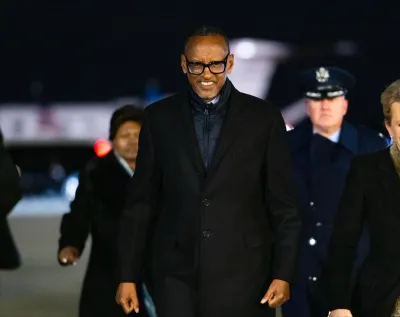

A man being kidnapped by Security Forces in Rubaga
By Dr Sylvia Namubiru
Turn Despair continues to mount day by day as a result of the increased spate of enforced disappearances; illegal detentions and kidnaps especially in the awake and aftermath of the 2021 general elections.
Surprisingly, the intention of these enforced disappearances and kidnaps remains elusive to the public. We all ought to however be concerned about these unlawful acts because all of us are potential victims. It’s imperative to further note that arbitrary arrests; enforced disappearances and kidnaps connote impunity and lawlessness in our country.
According to the Weekly Observer dated February 3rd 2021, enforced disappearances and kidnaps are politically motivated since majority of the victims are youthful opposition supporters. The Observer further mentions that the patterns of these acts are almost similar wherever they have been occasioned.
Whereas it’s known that the Police is the constitutionally mandated institution responsible for maintaining law and order, this has not been the case in the recent times. For example, victims’ families reveal that the enforced disappearances and kidnaps are sanctioned by uniformed security operatives in numberless drone vans hence making it difficult to trace and access victims to offer support in form of medical and legal redress.
Uganda ratified the International Convention for the Protection of All Persons from Enforced Disappearance (CPPED) in 2007.
The Convention defines “Enforced disappearance” as an offence to human dignity and occurs when a person is deprived of his or her liberty, whether under arrest, detention, or otherwise, by state authorities, and the detention is followed by a refusal to acknowledge that deprivation of freedom or to give information on the fate or whereabouts of the detained person.
The practice of “disappearances” is absolutely prohibited under international law and violates basic human rights, including the right to life, the right to liberty and security of the person, the right to a fair and public trial, as well as the prohibition on torture and cruel, inhuman, and degrading treatment or punishment.
Article 1 of the above Convention stipulates that no person shall be subjected to enforced disappearance even amidst exceptional circumstances such as war, political instability among others.
Within the same realm, Article 2 of the same Convention enjoins that enforced disappearance violates the right to personal liberty. At the national level, enforced disappearances violate a number of laws such as the 1995 Constitution of the Republic of Uganda specifically Articles (22) on right to life, (23) on the right to liberty and (24 and 44) on freedom from torture, inhuman and or degrading treatment; the Human Rights (Enforcement) Act, 2019 and the Prevention and Prohibition of Torture Act, 2012 among others.
It is also important to note that the persons affected by enforced disappearance are outside the protection of law and often their rights are grossly violated through torture and extra-judicial killings.
As you have been following closely majority of the victims of enforced disappearances have been paraded on the media with wounded bodies while others are still languishing in non-gazetted detention facilities hence undermining due processes especially the right to fair and speedy hearing as enshrined under Articles (23) and 28 (1) of the 1995 Constitution of Uganda.
Thus, at the height of the ongoing enforced disappearances and kidnaps, we need to be reminded by those who have lived longer than us that these incidences are a repeat of our violent history. Needless to mention, incidences of abductions mainly fueled by political persecution were a common occurrence in the 1960s and 70s during the Late Milton Obote and Idi Amin Dada’s regimes.
By and large, there is need to extend rehabilitation support to the victims of enforced disappearances and kidnaps. This will help in reducing emotional distress and anxiety especially for victims.
The Legal Aid Service Providers Network (LASPNET) through its 54 member organizations and Rapid Response Lawyers are committed to support the victims of enforced disappearances and kidnaps together with their families to seek legal redress.
In that regard, the perpetrators or those found culpable of conducting and or abetting enforced disappearances and kidnaps should be charged under the Human Rights Enforcement Act of 2019 as well as the Prevention and Prohibition of Torture Act of 2012 specifically under S.16 (b) which bars detention of suspects from non-gazetted facilities.
We further appeal to the enforcement agencies to follow due process and ensure that all suspects in their custody have access to Lawyers; Next of kin and Medical attention. In addition, suspects without any charges to answer should be realized unconditionally especially those who have overstayed beyond the 48 hours without appearing in court.
Fellow country men and women, let’s us all be vigilant and get involved in condemning enforced disappearances and kidnaps since they pose a great deal of human rights violations specially the right to liberty. We therefore call upon the public to access our services through our Toll-Free Line: 0800100155.
The Legal Aid Service Providers Network (LASPNET) through its 54 member organizations and Rapid Response Lawyers are committed to support the victims of enforced disappearances and kidnaps together with their families to seek legal redress
By Dr Sylvia Namubiru
The writer is an Advocate of the High Court of Uganda and CEO of LASPNET














Guest Writer
Leave a Comment
Your email address will not be published.